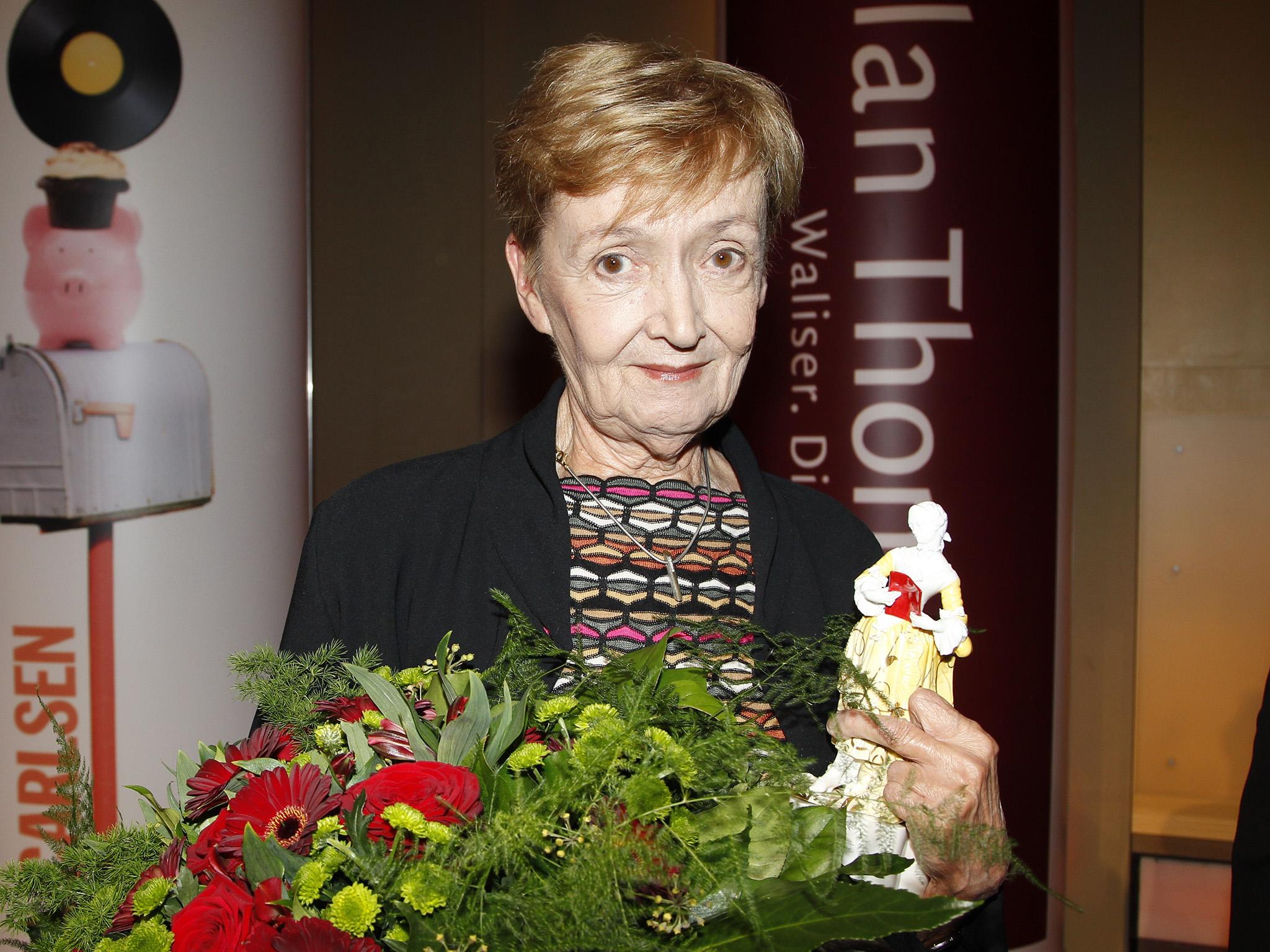Christine Nöstlinger: Award-winning Austrian author who championed children in fiction and real life
She spoke out against racism and stood up for the rights of children from socially deprived backgrounds

Your support helps us to tell the story
From reproductive rights to climate change to Big Tech, The Independent is on the ground when the story is developing. Whether it's investigating the financials of Elon Musk's pro-Trump PAC or producing our latest documentary, 'The A Word', which shines a light on the American women fighting for reproductive rights, we know how important it is to parse out the facts from the messaging.
At such a critical moment in US history, we need reporters on the ground. Your donation allows us to keep sending journalists to speak to both sides of the story.
The Independent is trusted by Americans across the entire political spectrum. And unlike many other quality news outlets, we choose not to lock Americans out of our reporting and analysis with paywalls. We believe quality journalism should be available to everyone, paid for by those who can afford it.
Your support makes all the difference.Austrian author Christine Nöstlinger earned some of the highest honours in children’s literature.
She published more than 150 books, including collections of poetry and journalism for adults, which sold millions of copies and were translated into 30 languages.
Nöstlinger, who has died aged 81, also enjoyed a reputation as a champion of disadvantaged children and racial equality.
A onetime art school student, Nöstlinger thought she was about to launch a career as an illustrator when she drew a plump, red-haired girl with an impish personality. Writing a children’s story to accompany her sketches, she published Fiery Frederica in 1970 – a German-language book that was more acclaimed for its prose than its pictures.
“As I was very keen on approval at the time, I took to writing,” Nöstlinger later said.
The story of Frederica, like nearly all of Nöstlinger’s tales for children, is fantastical but not escapist, with serious themes but a dash of silliness that drew comparisons to the English writer Edith Nesbit. At its centre is a girl who is bullied because of her brightly coloured hair, which has magical powers that enable her to flee her tormentors.
While the book’s protagonist escapes into a new and better world, Nöstlinger said she sought to encourage children to create such a world here on Earth.
“Since children live in an environment which offers them no encouragement to develop utopias for themselves, we have to take them by the arm and show them how beautiful, cheerful, just and humane this world could be,” she said in 1984, accepting the Hans Christian Andersen Award for children’s literature.
“Rightly done,” she added, “this will make children long for that better world, and their longing will make them willing to think about what must be initiated in order to produce the world they long for.”
Among Nöstlinger’s best-known books was the young-adult novel Fly Away Home (1973), which was based on her childhood in Vienna during the Second World War, when the city was occupied by Nazi forces and then the Soviet Red Army. (The book was adapted into an Austrian film of the same name in 2016.)
She also wrote books including The Cucumber King (1972), about an autocratic vegetable, and Conrad: The Factory-Made Boy (1975) about a divorcee – Mrs Bertie Bartolotti – who receives a mechanical child in the mail. He’s been delivered by mistake and, to avoid being returned, must learn how to be like the other algebra-hating, junk-food-eating “real” boys at school.
In 2003, Nöstlinger shared the inaugural Astrid Lindgren Memorial Award with writer and illustrator Maurice Sendak. The 5m kroner prize, then worth about £500,000, is the world’s largest prize for children’s and young-adult literature.
In its citation, the Lindgren jury praised Ms Nöstlinger’s “disrespectful humour, clear-sighted solemnity and inconspicuous warmth”. She was, they added, “a reliably bad childrearing influence of the same calibre as Astrid Lindgren,” the Swedish creator of Pippi Longstocking.
Nöstlinger was born in Vienna on 13 October 1936 to a family of politically active socialists. Her father was a watchmaker and her mother ran a nursery school, and the family was made homeless after allied forces bombed Vienna during the Second World War.
Nöstlinger, who was reportedly twice married, dropped out of art school in the late 1950s to raise her two daughters, Christiane Nöstlinger and Barbara Waldschütz. They later contributed illustrations to her books.
A complete list of survivors was not immediately available.
Nöstlinger received one of Austria’s highest national honours, the Decoration of Honour for Services to the Republic, and in recent years published books including Being a Woman Isn’t a Sport (2011), a collection of her newspaper columns, and Happiness Is a Moment (2013), a memoir.
She had stopped writing for children altogether, she told the magazine News shortly before death, in part because she found herself out of touch with today’s young readers.
“How am I supposed to know what makes kids move when they sit on their smartphone for half a day and do something with two thumbs on it?” she said. “Besides, if I hear what today’s kids like to read, it’s mostly fantasy, and it’s so far from me ... I understand that they have a longing to flee this complicated world and to go to another, where other rules, different laws prevail and ultimately good always triumphs. But that’s not what I could write.”
In a statement, Austrian president Alexander Van der Bellen wrote that the country had “lost one of its most important international literary voices” as well as “a loud and clear voice against all forms of injustice and oppression”.
Christine Nöstlinger, author, 13 October 1936, died 28 June 2018
© Washington Post
Join our commenting forum
Join thought-provoking conversations, follow other Independent readers and see their replies
Comments